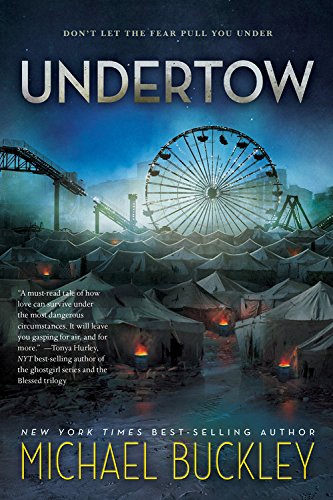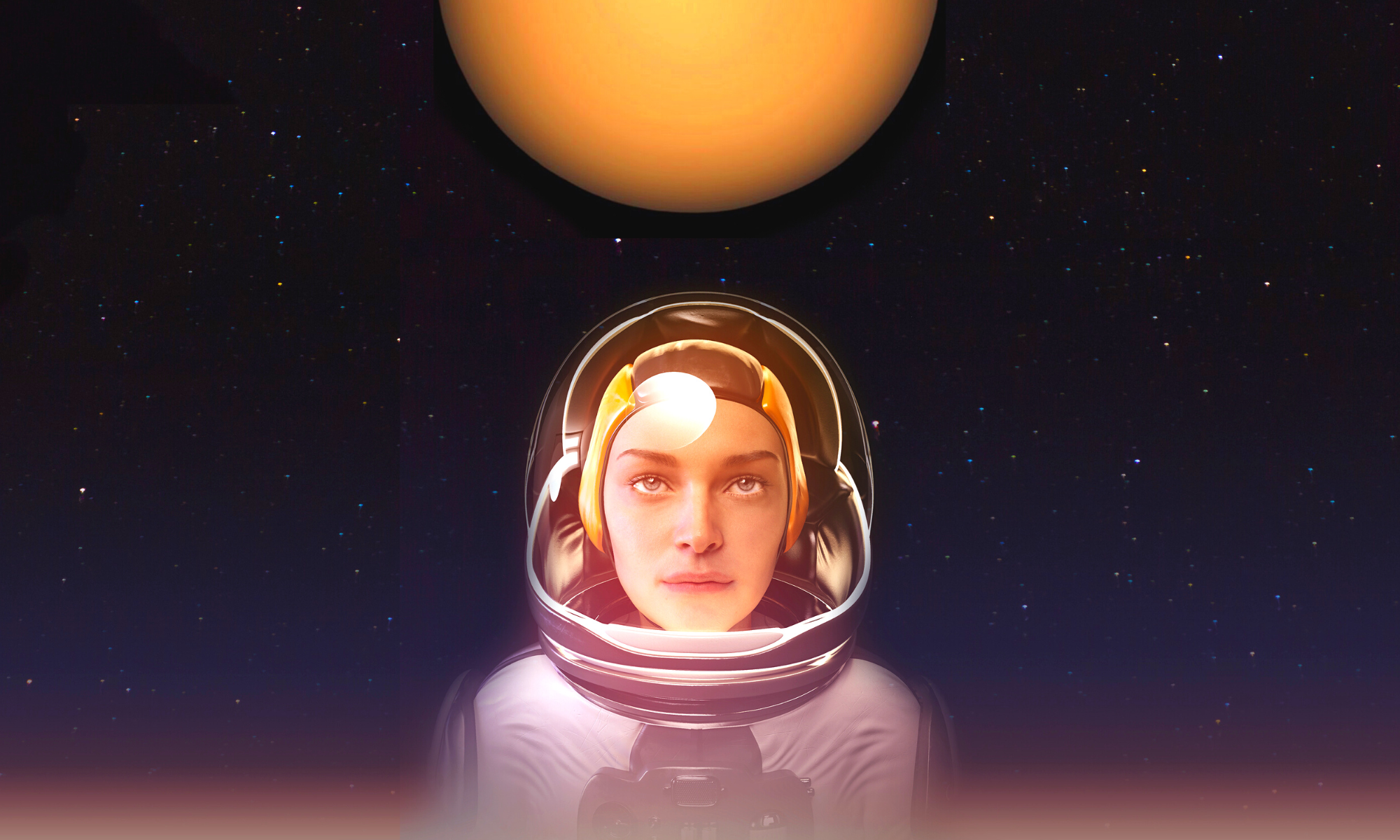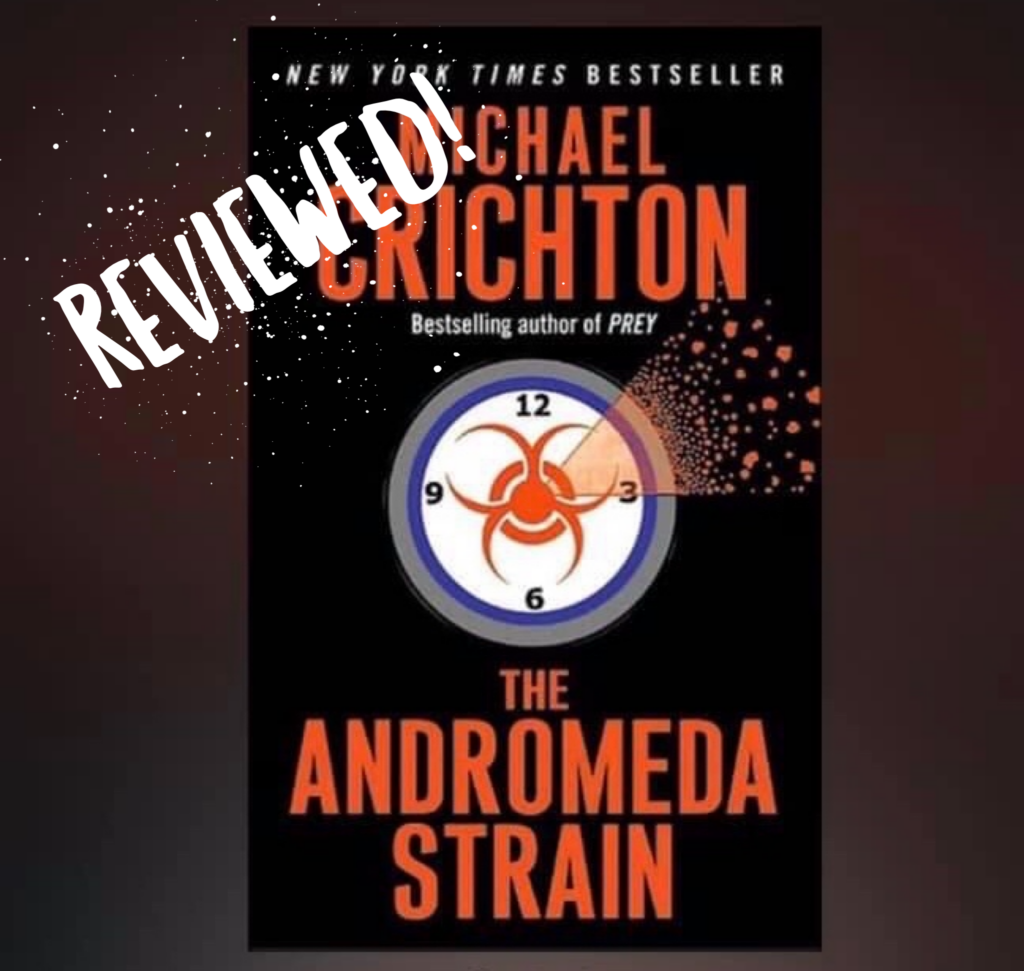Book Review Rating: 4.2 out of 5 stars

There’s a lot to unpack in this book review. I’ll start with why I picked up this book in the first place. I found this one on the Overdrive app which is an app I use to check out ebooks from my local library. If you aren’t doing this, I highly suggest it – it’s the kind of app that will transform your world, really.
(If you’re looking for more easy ways to incorporate reading into your day-to-day life, check out my three tips for how to read more books.)
This book came up in my Overdrive suggestions. It caught my eye because a) I was intrigued by the story idea and b) it’s a young adult science fiction novel with a female protagonist. This happens to be my writing genre so, as a writer, it’s important for me to read books in my genre. Plus, it has a great cover and we all know what they say about books and their covers…
A Brief Book Summary
Lyric Walker is a high school student whose world turns upside down when a race of water-dwelling beings called the Alpha show up on the beach near her home on New York’s Coney Island. The actual arrival of the Alpha occurs about three years before the events of the book and they’ve been living in a tent city on the beach since their arrival.
As the book goes on, it flashes back to fill in the gaps of who the Alpha are and why they arrived. The Alpha live in the sea, but they have been chased out of the ocean by another race of beings called the Rusalka, a far nastier form of sea-dwellers.
Lyric’s mother, Summer, is a member of the Alpha sent twenty years earlier to scout out the human population on Coney Island. Summer is a Sirena, basically a mermaid who can pass as human when not in the water, and she falls in love with Lyric’s father, a police officer on Coney Island. This makes Lyric half-Alpha, half-human. The backlash against the Alpha’s presence on the beach causes serious racial tensions to arise on the island (us vs. them) and the family realizes it’s best to keep Summer’s true identity a secret.
The US government makes a deal with the Alpha to start integrating them into society by allowing five of their royal children to attend the same high school as Coney Island teenagers. This integration causes the human population to go bananas and riots break out.
Lyric is recruited by the school principal to befriend one of the Alpha, a boy named Fathom who happens to be the Alpha prince. Predictably, Lyric and Fathom start off hating each other but eventually fall in love. Of course, this is made more complicated by the fact that Fathom is already betrothed to an Alpha girl named Arcade. Lyric doesn’t get the opportunity to tell Fathom about her hidden secret (the fact that she’s half-Alpha) before everything hits the fan.
(Note – a bunch of things happen in a very short time at the end of this book. For brevity’s sake, I’m going to skip over much of it and give you the gist of what’s most important.)
The Alpha realize that Lyric has a strange ability to move water when she wears a special metal gauntlet. Yes, a gauntlet, like the metal glove Thanos wears in The Avengers. She fights alongside the Alpha as they take on the Rusalka, who have found the Alpha’s hiding spot on the beach. During the fight, Fathom saves Lyric by breathing air into her lungs after she’s tossed into the ocean. He doesn’t make it out and is lost beneath the waves. Lyric survives with several of the Alpha leaders and she’s determined to find Fathom and take revenge on the Rusalka.
Book Review: My Thoughts
The author does an amazing job putting the reader in the middle of some serious racial tension. His fight is not between people of different colors and backgrounds, rather being of different species. But it’s the same principle of racism we live with today and I think an incredibly important idea for young people to understand that “Us vs Them” is not an acceptable way to live life.
There’s a scene in this book that is literally pulled out of the pages of history. The governor stands in front of the school doors to bar the Alpha students from entering and mingling with the humans. People riot and protest in support of the governor, heckling the Alpha students and demanding they leave. It’s a haunting callback to George Wallace standing in front of the doors at the University of Alabama in 1963, and frankly, it made me shiver.
There are some things about this book I would change. I felt it was about fifty pages too long. Much of the beginning of the book is full of the lead-up, which is fine, I like a good lead up to a dramatic event, but this one had a bit too much of it. There were times when I contemplated giving up on it. But I’m happy I stuck with it. The end was action-packed and worth the wait. The writing is good too – very descriptive, the way I like it.
Overall impression: Pretty good. Interesting storyline that does a good job of illustrating how toxic racial prejudice can drag society down into the depths of chaos. A bit boring during the first half of the book, but it takes off in the second half. Will I read the sequel (this is a series folks)? Maybe in the future, but not right now.
Have you read this one? If so, leave me a comment and let me know what you think.
Looking for my last book review? Here’s my review of The Andromeda Strain. Want a pared-down version of my reviews mixed with a little bonus, exclusive content? Sign up for my monthly newsletter, The Queue!
Thanks for stopping by!
Rebecca


